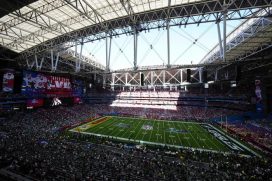Laurie Dougherty is a nurse practioner by profession with a Master of Science in Nursing and occasional contributor to Philliedelphia. Here, Laurie checks in sharing her knowledge on Chase Utley's injury.
There has been a lot of controversy over Chase Utley and his creaky knees the last 2 seasons. He missed the first month and a half of 2011, returning on May 23 against the Cincinnati Reds. Although the plan was to give him rest, that plan never came to fruition, as Chase is not a player who likes to sit. He gives his heart and soul when he is on the field, which is what fans in Philadelphia love about him.
However, when it comes to his health, it seems that he is not always as forthcoming, even though fans are invested in him and his role in the team's success. While I certainly understand that he has a right to privacy about his health, he is a very popular and public figure in this city. We all care about what is happening with him and want to know when we'll get to see him on the field. The fans want to know if the problem with his knees is a chronic one and how it will impact him and the team moving into the future.
Image courtesy American Academy of Orthopedic Surgeons
As per Todd Zolecki,the Phillies beat writer for MLB.com, Utley had an MRI on March 9 of this year that showed "his prior tendinitis, chondromalacia and bone inflammation. His chondromalacia symptoms persisted in spite of focused non-operative care, including a cortisone injection."
Although the MRI report doesn't say that Utley's knees are worse, they are certainly not any better either. Rest and rehab hasn'treally helped. That is why, in my opinion, Chase should get both knees replaced.
Knee replacement is indicated when there is 1) severe knee pain or stiffness that limits everyday activities; 2) moderate or severe knee pain while resting; 3) Chronic knee inflammation and swelling that does not improve with rest or medications; 4) Failure to substantially improve with other treatments such as anti-inflammatory medications, cortisone injections, physical therapy or other surgeries. Based on what we've heard about Chase, he likely meets the last two criteria for knee surgery. Although we don't know the exact extent of what Chase's MRI from earlier this month showed, it is reasonable to think that he has had cartilage loss and narrowing of the joint space, as shown in the diagram on the right below.
His pain has not gotten better despite whatever meds he has been taking. He recently saw a physical therapist who recommended some different stretching exercises.
Although these new exercises may help him in the short term and get him back on the field, the likelihood that they will help in the long term is highly doubtful, in my opinion.
That is why I strongly believe that if Chase wants to keep playing into his late 30s (as I believe he does), he should bite the bullet and have both knees replaced now. I strongly believe that surgery at this time would give him the best chance to prolong his career. He would be lost for the 2012 season but would prolong his career and give the Phillies a chance to grow a new 2nd baseman (someone that Chase could perhaps mentor) and still give them a chance to win another World Series title while they have the services of Roy Halladay, Cliff Lee and Cole Hamels as part of their pitching staff.







